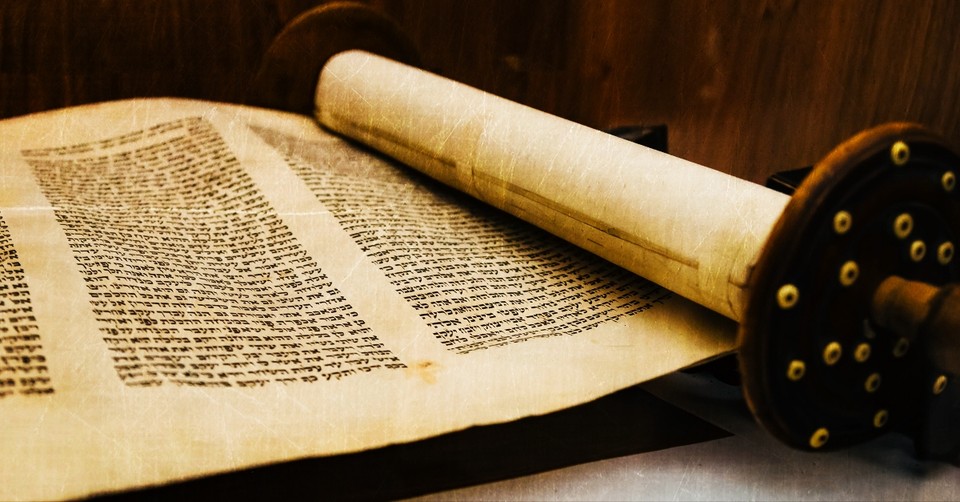What Should Christians Know about the Torah?

The Torah is a central part of both the Jewish and Christian faiths, but for Christians, the teachings and stories contained in the Torah can be unfamiliar and challenging to understand. However, studying the Torah can provide important historical and spiritual insights, and deepen our understanding of the foundational teachings of our own faith. The Torah is an essential part of the Bible and continues to be relevant to us today.
What Is the Torah?
The Torah is the primary sacred text of the Jewish faith. It consists of the first five books of the Hebrew Bible: Genesis, Exodus, Leviticus, Numbers, and Deuteronomy.
The word “Torah” comes from the Hebrew word for “instruction” or “teaching.” According to Jewish tradition, the Torah was given by God to Moses on Mount Sinai. It contains the laws and commandments that guide Jewish life and worship. In Judaism, the Torah is considered to be the foundation of Jewish law, ethics, and theology.
The Torah is divided into weekly portions that are read in synagogues on the Sabbath, and it is studied extensively by Jews around the world. In addition to its religious significance, the Torah is also recognized as a significant work of literature and a source of inspiration for people of many different faiths and cultures.
What Should Christians Know about the Torah?
For us as Christians, the Torah holds great historical and spiritual significance since it is the foundation of the Old Testament. It provides important insights into the history, culture, and religious practices of the Jewish people, and helps us understand the roots of our own faith.
The Bible also references the teachings and stories contained in the Torah throughout the New Testament. Jesus and his disciples were all Jewish, and they drew upon the traditions and teachings of the Torah in their teachings and ministry. Here are some examples of how the New Testament references the teachings and stories in the Torah:
The Ten Commandments: The Ten Commandments, which the Bible describes in Exodus chapter 20 and Deuteronomy chapter 5, are foundational to the Jewish faith. In the New Testament, Jesus references several of the commandments, including the commandment to honor one's parents (Matthew 15:4-6) and the commandment not to commit adultery (Matthew 5:27-28). Jesus says in Matthew 19:17: “… If you want to enter life, keep the commandments.”
The story of Adam and Eve: The New Testament references the story of Adam and Eve, which is found in the book of Genesis, several times. For example, in Romans 5:12-21, the Apostle Paul draws a parallel between Adam and Jesus, stating that just as sin entered the world through Adam, salvation and righteousness come through Jesus.
The story of the serpent in the Garden of Eden: The Book of Genesis story about the serpent who lied to Adam and Eve in the Garden of Eden shows up several times in the New Testament. For example, both Revelation 12:9 and Revelation 20:2 refer to the devil as the “ancient serpent” who deceived Adam and Eve.
The story of Noah and the flood: Jesus references the story of Noah and the flood, from the book of Genesis, in Matthew 24:37-39, where Jesus compares the coming of the Son of Man to the days of Noah: “As it was in the days of Noah, so it will be at the coming of the Son of Man. For in the days before the flood, people were eating and drinking, marrying and giving in marriage, up to the day Noah entered the ark; and they knew nothing about what would happen until the flood came and took them all away. That is how it will be at the coming of the Son of Man.”
The story of Abraham and Isaac: The New Testament mentions the story of Abraham and Isaac, which the Torah describes in the book of Genesis, in several places. For example, in Hebrews 11:17-19, the Apostle Paul uses the story to illustrate the faith and obedience of Abraham.
The story of Moses: References to the story of Moses, which the Torah features in the books of Exodus and Deuteronomy, show up in various places in the New Testament. For instance, in John 1:17, the Apostle John writes: “For the law was given through Moses; grace and truth came through Jesus Christ.”
The story of the Passover: The New Testament mentions the Passover story, which the Torah describes in the book of Exodus, in several places. For example, in 1 Corinthians 5:7, the Apostle Paul uses the image of the Passover lamb to refer to Jesus and his redemptive sacrifice for humanity.
These are just a few highlighted examples of how the New Testament references content featured in the Torah. There are many other references as well, demonstrating the continuity and interconnectedness of these two major parts of the Bible.
As Christians, we should also keep in mind that while the Torah is an important part of the Old Testament, it is not the only part. There are many other books in the Old Testament that provide additional historical and spiritual context and insight into God’s relationship with people.
Why Is the Torah Important?
The Torah is important for many reasons. It has historical significance because it provides an important historical record of the Jewish people, including their origins, traditions, and religious practices. It has spiritual significance because it contains the foundational teachings of the Jewish faith, which have had a significant influence on Christianity. The Torah also provides important moral and ethical guidance that is still relevant and meaningful today.
Since the Torah is an important part of the Bible, as Christians, we should regularly seek to learn from its teachings. Lifelong learning is a vital part of growing in our faith, and reading is a key way we can pursue lifelong learning, I share in my book Wake Up to Wonder. The more we read all parts of the Bible – including the Torah – the more we can learn spiritually. Jesus, who taught others from the Torah during his earthly life, was often called “Rabboni” (which means a master teacher) by people who met him. “Take my yoke upon you and learn from me, for I am gentle and humble in heart, and you will find rest for your souls,” Jesus tells us in Matthew 11:29.
Conclusion
Christians should know that the Torah consists of the first five books of the Bible: Genesis, Exodus, Leviticus, Numbers, and Deuteronomy. The Torah is foundational to both the Jewish and Christian faiths, and the New Testament references it often, showing the continuity and interconnectedness of these two major parts of the Bible. We should also be aware that the Torah provides important historical and spiritual context for the teachings of the New Testament. The Torah is still relevant and meaningful today. Its teachings and commandments provide guidance on how to live holy lives that help us enjoy strong relationships with God. The Torah can also deepen our understanding of the cultural and religious background of Jesus and his followers during biblical times. Jesus taught people the Torah, and it’s important for us to continue to learn from the Torah today since it remains a vital part of the Bible.
Photo Credit: ©iStock/Getty Imags Plus/Vladimir Zapletin

Originally published May 10, 2023.





